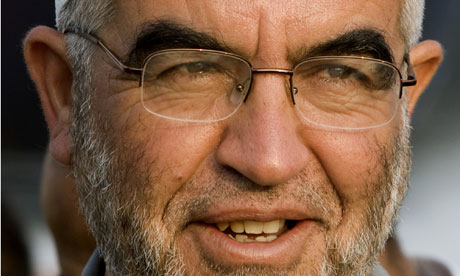Josh Ruebner writes:
Palestinians are now preparing an application for the State of Palestine to become a full member of the UN and engaging in a diplomatic offensive to add to the approximately 120 countries already recognizing Palestinian statehood in advance of this September’s UN General Assembly meeting.
The Obama administration is predictably and unalterably opposed to this initiative. At last month’s American Israel Public Affairs Committee policy conference, the president pledged that “No vote at the United Nations will ever create an independent Palestinian state…the United States will stand up against efforts to single Israel out at the United Nations…Israel’s legitimacy is not a matter for debate.”
By equating Palestinian efforts to seek their rights at the UN with the “delegitimization” of Israel and by attempting to subvert this initiative, President Obama is historically, morally, and politically wrong.
Although he may win applause from Israel’s supporters by claiming that the UN cannot vote for Palestinian statehood, President Obama is powerless to change the historical record. The UN already voted for the creation of an independent Palestinian state when it passed General Assembly Resolution 181 in 1947, partitioning historic Palestine into a Jewish state (55 percent of the territory) and an Arab State (45 percent), with Jerusalem as an open, international city. Ironically, this resolution would not have passed without the aggressive U.S. lobbying effort that accompanied it.
Ever since the UN voted to partition Palestine, at a time when Palestinians owned 93 percent of the land and Jews 7 percent, Israel’s ceaseless quest to depopulate, colonize, and annex as much Palestinian land as possible has been the primary factor preventing the establishment of an independent Palestinian state.
Palestinians have waited 64 years since the partition of Palestine to live in freedom on at least a portion of their homeland. By attempting to force Palestinians back to never-ending negotiations with Israel, President Obama is subjecting Palestinian freedom to Israel’s timetable.

